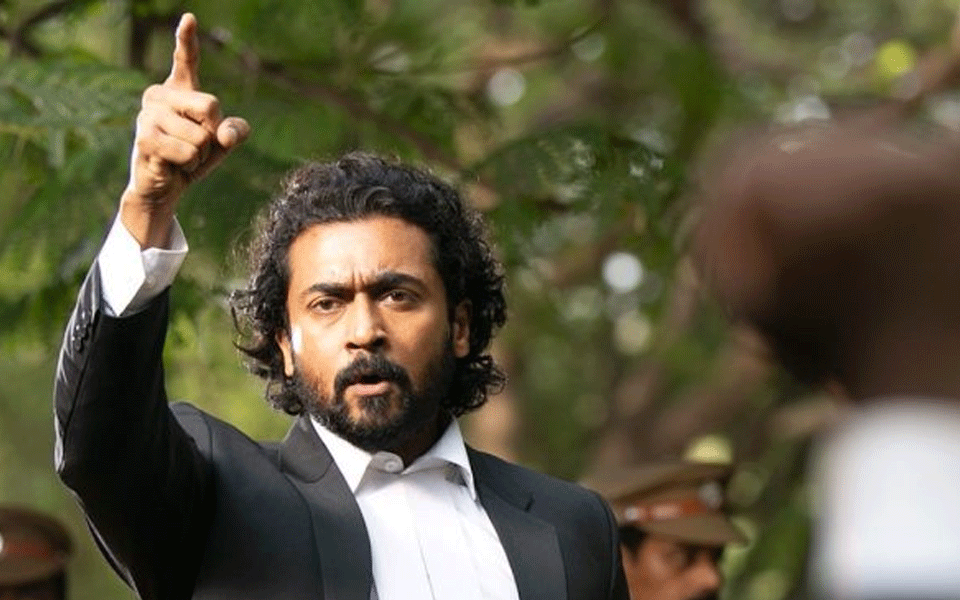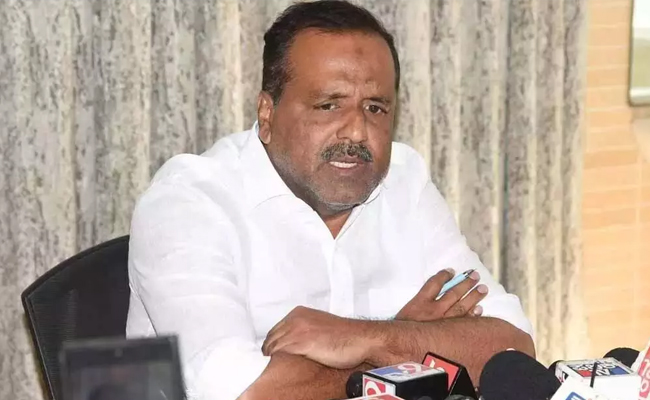Chennai(PTI): Actor Suriya starrer flick 'Jai Bhim' director Tha Se Gnanavel on Sunday said there was absolutely no intention of hurting any particular community and expressed regret to those who were offended.
'Jai Bhim' that was released on November 1 in languages including Tamil and Telugu kicked up a row in Tamil Nadu with the Vanniyar Sangam and members of the community alleging that it had portrayed them in bad light. The movie was released in OTT platform Amazon-Prime Video.
Emphasising that there was not even a "wee little bit of thought to cause affront to any individual or a community," in the making of the film, Gnanavel said, "I convey my heartfelt regret to those offended and anguished." The film director also expressed regret for the difficulty caused to Suriya in the wake of the controversy, who is the lead actor and Jai Bhim producer. The crux of the row is the alleged vilification of the Vanniyar community by naming a wicked police sub inspector as 'Guru' (Gurumurthy) and showcasing the raging fire pot symbol of the community in a calendar, in the background, in one of the scenes and the foreground had the police SI who tortured the innocent tribal man to death. "I did not know that a calendar hung in the background will be understood as a reference to a community. It is not our intention to make it a symbol of reference to a particular community and it was only to reflect the period, the year 1995," Gnanavel claimed in a statement. During filming or post-production, the calendar footage, that appears for a few seconds did not catch their attention, he said. Also, even before the film premiered on Amazon Prime, it was exhibited for several people. "Had it come to our notice during that time, we would have changed it before its release." After they "got to know about the calendar in the background through social media," after its release, all efforts were made to change it on the following day morning itself, he said.
"As the calendar in the background was changed even before anyone demanded it, I believed that everyone will understand that we had no ulterior motive," the director said. "It is unfortunate to ask Suriya to own up responsibility. As the director, this is a matter I alone has to take responsibility." The film, though based on a true incident of custodial torture and death of a 'Koravar' tribal man in 1995 in Tamil Nadu it had elements of fiction. The flick portrayed the tribal man as belonging to the Irula tribes. The names of people connected to the real life incident, like that of Justice Chandru who had argued the case in the Madras High Court as an advocate were retained. Some names like that of Rajakannu's wife (original name Parvathi, changed to Sengenni) and the police sub inspector who tortured, leading to the death of the tribal man was changed from Anthonysamy to Guru (Gurumurthy). The calendar that was replaced had an image of Goddess Lakshmi. The Vanniyar Sangam had on November 15 sent a legal notice to makers 'Jai Bhim' alleging that the flick tarnished the reputation of Vanniyar community and sought an unconditional apology from them.
Removal of references to Vanniyar community's revered symbol of raging fire pot, an apology for "damning, tarnishing and damaging the reputation" of the community, desisting from similar "malicious" moves and payment of Rs 5 crore in damages were the demands made in that legal notice.
Vanniyars, or Vanniya Kula Kshatriyas, a Most Backward Community in Tamil Nadu are predominant in the northern districts of the state. The Vanniyar Sangam's symbol is also the raging fire pot.
Let the Truth be known. If you read VB and like VB, please be a VB Supporter and Help us deliver the Truth to one and all.
Mangaluru (Karnataka) (PTI): Karnataka Legislative Assembly Speaker U T Khader on Wednesday sought an inquiry after a large number of Aadhaar cards were found on the banks of the Nethravathi River here.
The cards were found at Farangipete in Pudu village of his Mangaluru Assembly constituency.
Khader, in a note to the Project Manager of the Unique Identification Authority of India (UIDAI), Bengaluru, sought immediate intervention and necessary action against those responsible.
In the note dated March 4, he said that local residents noticed the Aadhaar cards along the riverbank on March 3.
Following information received from the public, the Pudu Gram Panchayat president and villagers collected the Aadhaar cards found scattered in the area. They subsequently brought the matter to his attention and the concerned authorities, he said.
Expressing concern over the incident, the Speaker has directed that a thorough investigation be conducted to ascertain how such a large number of Aadhaar cards ended up on the riverbank and to identify those responsible.
He instructed officials to initiate appropriate legal action through the concerned department at the earliest.





